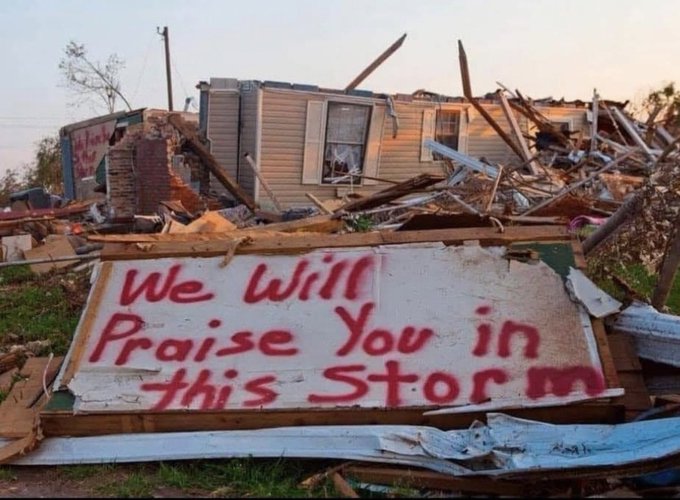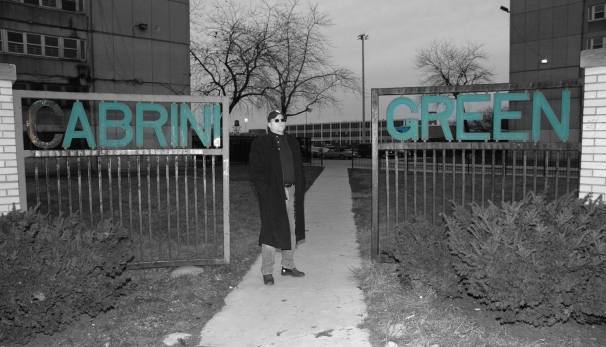I live in Tallahassee, Florida. During the recent onslaught of Hurricanes Helene and Milton, my home and town have fortunately avoided mass damage. We suffered some high winds but not much else. I have family in south Florida who lost much, much more. The damage is catastrophic, with many people left with nothing at all. In the days after Helene, my wife, mother-in-law, and I went down to check on their house, and we met a nextdoor neighbor who was absorbing the devastation: in the fury of the sea and storm, her house had essentially been swallowed whole. This was an all-too-common occurrence. There was not much else to do save give her a hug and help her clean up.
In much of the news coverage of the aftermath in North Carolina, Florida, and Tennessee, reporters and citizens alike mourn their losses, but also praise the hope they’ve witnessed. People in their communities coming together to lug water jugs up mountains, shovel sand out of living rooms, or simply sharing meals together. It is hope in this part of humanity, which often bubbles to the surface around disasters, that buoys our spirits. Disasters like this are often so massive that they can leave one hopeless: after all, what can mere man do against the full force of nature? I remember standing in the ruins of a house marveling and fearing the sea’s ability to crush cinder block and metal. However, I also noted another natural phenomenon.
After all storms, but especially hurricanes, the weather is always immaculate. In Florida, where we’ve been living in high humidity and nearly one hundred degree heat for the better part of four months now, this shift in weather is always welcome. The day after Hurricane Helene my wife and I walked around the neighborhood, and there was a cool breeze, sunshine, and zero humidity. After talking with some folks, we went home and sat outside reading and soaking in the glorious weather. After Hurricane Milton, there was a similar phenomenon. The temperatures began to drop and for the first time in a while we turned off the AC and the house didn’t warm up—it cooled down. All this certainly has to do with changes in pressure and systems brought about by the storms, but there is also something beautiful in the passing of a storm.
After the Great Flood, God hangs a rainbow in the sky as a promise to Noah to never destroy the Earth again. In Scripture, we read:
But God remembered Noah and all the wild animals and the livestock that were with him in the ark, and he sent a wind over the earth, and the waters receded. Now the springs of the deep and the floodgates of the heavens had been closed, and the rain had stopped falling from the sky. The water receded steadily from the earth.
God remembers His people and calls for a change in the weather. The winds shift and the seas recede to provide salvation to Noah and his family. The world is left in chaos with death and destruction everywhere. Noah still has to deal with the ruined world, yet there is a firm hope that is found in the promises of God.
In the New Testament, Jesus Christ silences the storm while He and His disciples sail across the sea. I love the Jesus Storybook Bible’s retelling of this story. It is called captain of the storm, and the author makes a profound observation: the voice that calls for the storm to cease is the same one that created the wind and waves in the first place. Jesus speaks and everything is still. The weather changes and He delivers His disciples. Throughout Scripture and the natural world, there are patterns that model Divine mysteries for us. Day turns to night, which turns back to day. The cycle of death is alleviated by the coming of dawn, and destruction will inevitably lead to resurrection. These symbols reenact the pivotal moment of all history for us: the crucifixion followed by the unexpected and radical resurrection. These events redeemed all things and breathed new life (literally and figuratively) into creation.
These recent disasters are events to mourn. Children, parents, grandparents have all tragically passed away, and we should pray for their souls. Throughout history tragedies and disasters always lead to questions about God’s goodness. In many ways these are the most fundamental questions humans wrestle with. In Scripture, Job loses everything and asks very legitimate questions of God. During the account of Job, his friends give every reason to question and turn on God. Job has been faithful to God and led his family and community well. We also know that God delivered Job into the hands of the devil. How could God do this? At the end of the story, God responds to Job and his friends decisively. God, the maker of the universe, works everything according to His will, and His will is perfect. That does not mean that we do not wonder or question it, but we can trust in it.
When Christ died on the cross, the disciples did not know he was going to rise again. But for Christians today, we see the full picture, and these are not meaningless tragedies. During these times we must remember that the changing of the weather is the seal of God’s promise not to abandon us. Thankfully, God has never flooded the whole Earth again, but we get glimpses of the curse during hurricanes and other disasters. They remind us of both our own sinfulness and God’s justice. But these storms, as terrifying as they are, are always followed by a change in the weather that reminds us of God’s goodness and care for us. That is an eternal hope, a hope that promises to carry us through any hardship.
So there is much work to be done. Houses and lives need to be rebuilt. Tears will be shed and sweat spent. It begins with clearing away water-logged rugs and rotten refrigerators. But remember there’s been a change in the weather. The clouds parted, and the rain stopped. People who went away or burrowed into shelters are emerging and reconnecting under the sun—the sun that is shining anew. Likewise, Christians live after the Crucifixion and Resurrection. The work is there to be done. Don’t take the post-hurricane weather for granted. It is emblematic of more than just a changing weather pattern—it is a reminder of redemption and salvation.
And it is good to work in such glorious weather.
Image via heather_tow on X.com












Thanks, brother! I needed that reminder!
Comments are closed.